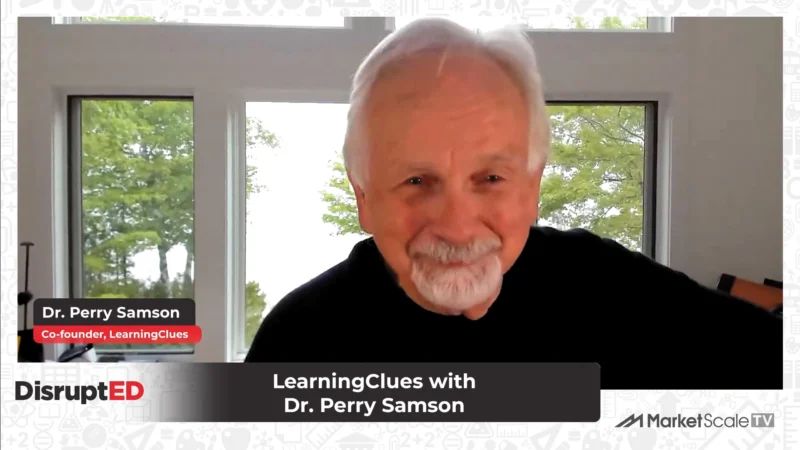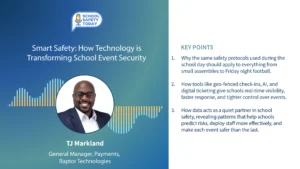New Texas Science Curriculum Puts the Pressure on Professional Development for Teachers
Keeping up with the latest trends, technology, and data in science is a vital step to ensuring a state’s science curriculum meets the needs of today’s students. It’s also a field defined by practice. So why are so many fundamental scientific concepts still taught out of a textbook? That was the big question the Texas School Board of Education posed back in 2021. Their answer to that dilemma was an entire reworking of the state’s science curriculum. Adjusting standards and rubrics is just half the battle, though. School districts, now several years into the transition, are faced with a tough challenge: putting together adequate professional development for teachers.
At the conclusion of 2021, the Texas School Board of Education (SBOE) revised its Texas Essential Knowledge and Skills (TEKS) for Science for all K-8 students. The goal was to give the state’s science curriculum much-needed revisions to encourage more hands-on learning and less lecture-based education for students. Planning and building of the new science standards are underway, with a planned operational date beginning in the 2024-2025 school year and finalizing its integration by 2026.
In-depth professional development for teachers is and will continue to be a must to make the transition to the revised TEKS as seamless as possible. Professional development pros have been hard at work getting teachers ready for the transition, especially since the new science standards aim to put more day-to-day instruction back in the hands of students. What role will teachers play in the science classroom? And where is this proving to be a professional development challenge?
For insights into the revised TEKS for science, what’s new, what’s changing, the type of professional development for teachers that’s already underway, and how the training is being received, MarketScale spoke with several school district professionals in the north Texas area:
- Tracey Bruce, Secondary Science District Strategist at Grand Prairie ISD
- Derek McDowell, Secondary Science Coordinator at Frisco ISD and TSELA President
- Ann Mulvihill, AVID Secondary Coordinator at Garland ISD and TSELA Treasurer
What’s in the New Science TEKS?
“One thing I see that I’m excited to see evolve, I like some of the true biology being put back in biology. I like that a lot. There’s some things that are coming back that were put away for a while, like I mentioned, balancing equations. This last one had to recognize they were balanced, but honestly you have to balance it to be able to recognize it’s balanced. Things like that. And of course, you’re pushing some things from high school back into the lower grades. Some people aren’t too happy about that because as teachers they’ll have to adjust and learn it themselves to be able to teach it, because maybe they hadn’t taught it in a long time. So that’ll be something that we’ll be focusing on as well as we develop those PDs, thinking of those teachers that need the extra support for possibly new material that’s gonna be a subject that they’re teaching.” – Tracey Bruce, Secondary Science District Strategist at Grand Prairie ISD
“New standards are definitely going to involve students doing more and possibly teachers doing less. So I think some of the struggles is that teachers feel like experts. I am the teacher, right? I’ve been hired, given this job, to teach students to learn this particular content. Some of the work that we need to do is to get teachers…give them permission. I say that a lot. Teachers need permission to not have to be the deliverer of all the information. Let’s let the students grapple with some things. I think humans are naturally curious creatures, especially the younger you are, the more curious you are. Elementary students see the world and they’re amazed by everything that they see, and I think me working in secondary, I need to encourage that kind of philosophy in the teachers to say, the students tap into that curiosity.
A lot of the new standards are utilizing this concept of a phenomenon. Start with the phenomenon and let the students figure things out. That’s really what science is. You see something, what’s causing that, and you figure it out. So the more we can implement that in our classrooms, I think the more we’re preparing students to master science content.” – Derek McDowell, Secondary Science Coordinator at Frisco ISD and TSELA President
“One of the things I usually tell some of them, my supervisors, and even campus admin, is that teaching science well or not well costs money because science requires so many other things other than the resource. It requires something as simple as paper plates and markers, and regular, what I would call, school supplies to Walmart scientific type stuff. On top of that, the older you get and the more complex the course gets, it’s pretty expensive to teach science. And so ultimately the biggest shift in the standards is, there’s so much more about the science practices and those science practices are enveloping the content. So you can’t teach practice and content separately. They’re married and you do better when they are.
So for teachers, it’s still a very large thing to comprehend and to plan for. So science teachers have a big task, and so every time they’re planning lessons, they’re planning lessons that are about the practice and the content. And so that’s a big chunk to swallow and chew and to plan for. So the biggest thing now is those practices, the science practices and engineering skills that are there and in our standards now are very connected to the content.” – Ann Mulvihill, AVID Secondary Coordinator at Garland ISD and TSELA Treasurer
Updates on Science TEKS Professional Development for Teachers
As mentioned above, there is a tremendous effort to provide professional development for teachers for the revised TEKS to ensure educators are well-versed and trained on the new science standards. How is the transition process going? Bruce, McDowell, and Mulvihill updated us on where districts are in the development process and the road ahead.
“I think the journey is gonna vary by district size. I can speak for my own situation in a very large suburban school district. We have 27 secondary campuses and we have about 500 teachers. My role, I partner with someone else in the district and we support 500 secondary science teachers, and that’s not even talking about the elementary science teachers. So we have a lot of teachers that need to go through a lot of learning. And so I think the journey’s gonna vary based on size. So in our particular situation, we have tried to get started, but we’ve exhibited some caution at the same time, because teachers right now have a lot going on.
We came out of the pandemic, students have changed. The teaching has gotten more complex recently. We’ve actually been somewhat slow in overwhelming teachers with too much information. We’ve tried to be very strategic.” – Derek McDowell, Secondary Science Coordinator at Frisco ISD and TSELA President
“The first challenge is gonna be the veteran teachers, because the veteran teachers obviously have the background knowledge of old TEKS, and so that’ll be the first hindrance possibly. But, it’s a hurdle that we can get over. In terms of professional development, which is a big part of what I do, I will be going into looking at the new revisits, getting a really good feel for what they are. I will at that point then develop some professional development to help do overviews for teachers to become comfortable with what it is they’re expected to do. Focus on the verb, so teachers know how to prepare appropriate lesson to teach that TEK. That’s pretty much what we’re looking for going forward with getting ready to push those revisits out.” – Tracey Bruce, Secondary Science District Strategist at Grand Prairie ISD
“The biggest thing that I’ve wanted to make sure of is that I was well-versed when the changes were even coming down the pipe. I stayed very close to following the State Board of Education in each one of their monthly meetings that they have and how those changes were occurring in each, what they call, rendition of their published drafts, and as those were published and we saw what the revisions were going to be, because this was a full TEKS revision. This time I was making sure that it had accuracy, it had new language that is much more nationwide, which would be following the K-12 science framework for education, and being sure that was used as a reference and a support for our new science TEKS revision process with all of the different teams.”
Professional Development Tips for Administrators and Educators
More details about the revised Science TEKS implementation and how they fit into a larger curriculum revamp for the state of Texas, Proclamation 2024, are available for educators to reference and better understand the big picture of the transition timeline. As educators continue to prepare for the shift, Bruce, McDowell, and Mulvihill offered additional tips for those leading the new standards’ corresponding professional development for teachers.
“The biggest thing now on the horizon was after you got yourself schooled up on what those TEKS and changes were by grade, by subject, the next thing was to see, make sure, what was the information that was gonna be such a big apparent difference or addition, and that is the science and engineering practice language. And that coming straight from the framework is a big piece. Getting versed in that and making sure you understand those, and you understand what’s considered, they call it, the reoccurring themes. Those pieces are very new. And so getting really, what I would call, schooled up on that, and once I got schooled up on that, the next thing was to start strategizing. How many days of PD do I have? How can we take this in incremental, what I call swallowable chunks? And then at the same time, you have to look at your professional development plan, and at the same time, look at then your curriculum. And how are you gonna make those changes? Do you need to start that before the implementation year? And some things are gonna have to start before the implementation year so that you’re ready for the assessment in 24/25 Spring.” – Ann Mulvihill, AVID Secondary Coordinator at Garland ISD and TSELA Treasurer
“I would say my tip is know your audience. If you’re developing something for your teachers, make sure that it’s grade level appropriate, because middle school is not the same as high school teachers. Neither is elementary. They all have different personalities. So keep in mind as you do activities, keep the activities, even have activities for those teachers as you do the PD and keep them short.” – Tracey Bruce, Secondary Science District Strategist at Grand Prairie ISD
“In our particular situation, we are trying to gather cohort of teacher leaders in our district that we’re taking them through a leadership academy to expose them to some of the foundational ideas that brought about the new standards.” – Derek McDowell, Secondary Science Coordinator at Frisco ISD and TSELA President








